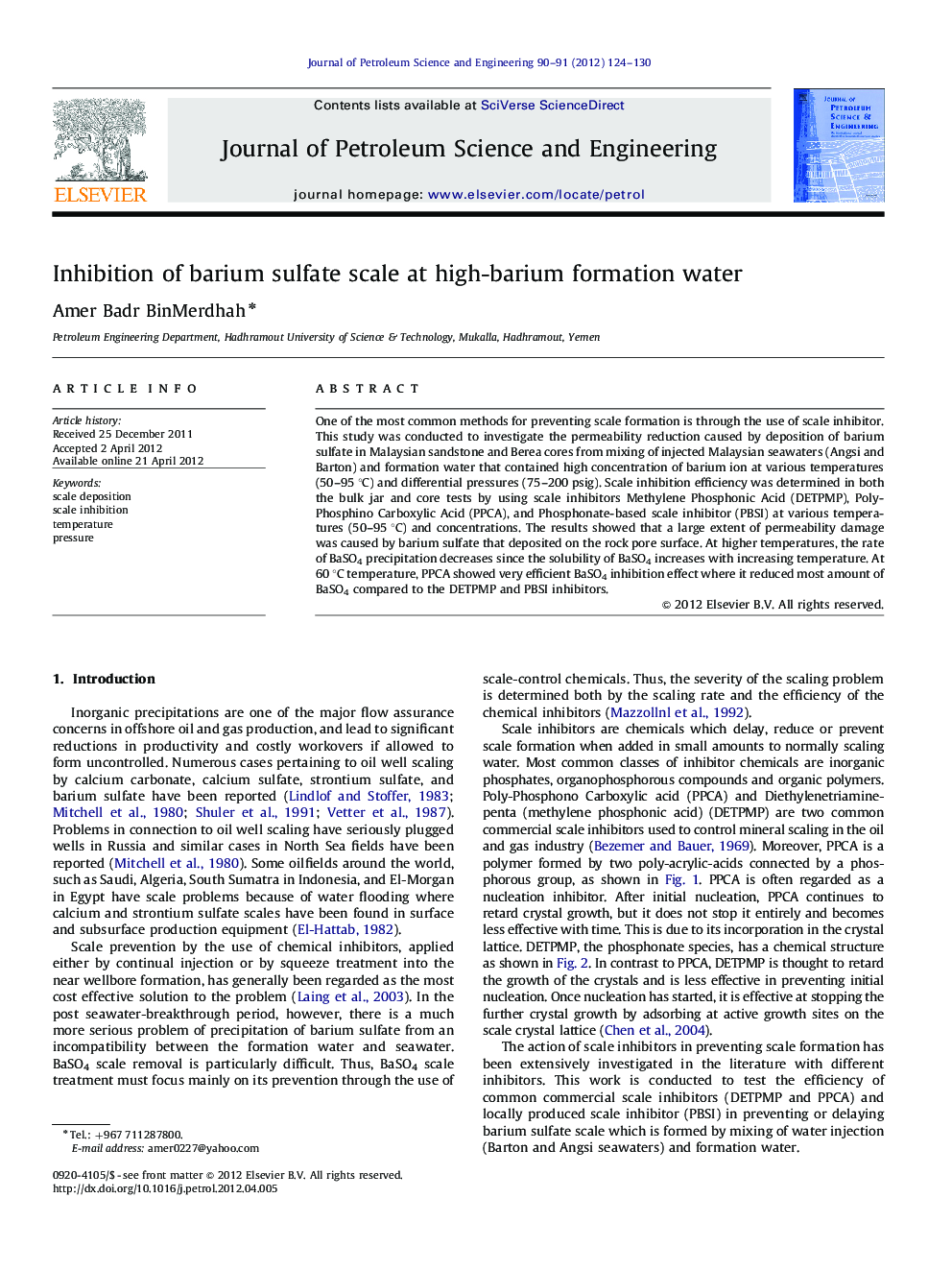| کد مقاله | کد نشریه | سال انتشار | مقاله انگلیسی | نسخه تمام متن |
|---|---|---|---|---|
| 1755442 | 1522846 | 2012 | 7 صفحه PDF | دانلود رایگان |

One of the most common methods for preventing scale formation is through the use of scale inhibitor. This study was conducted to investigate the permeability reduction caused by deposition of barium sulfate in Malaysian sandstone and Berea cores from mixing of injected Malaysian seawaters (Angsi and Barton) and formation water that contained high concentration of barium ion at various temperatures (50–95 °C) and differential pressures (75–200 psig). Scale inhibition efficiency was determined in both the bulk jar and core tests by using scale inhibitors Methylene Phosphonic Acid (DETPMP), Poly-Phosphino Carboxylic Acid (PPCA), and Phosphonate-based scale inhibitor (PBSI) at various temperatures (50–95 °C) and concentrations. The results showed that a large extent of permeability damage was caused by barium sulfate that deposited on the rock pore surface. At higher temperatures, the rate of BaSO4 precipitation decreases since the solubility of BaSO4 increases with increasing temperature. At 60 °C temperature, PPCA showed very efficient BaSO4 inhibition effect where it reduced most amount of BaSO4 compared to the DETPMP and PBSI inhibitors.
► Permeability reduction by BaSO4 scale.
► Determined scale inhibition efficiency.
► Observed BaSO4 crystals by SEM.
Journal: Journal of Petroleum Science and Engineering - Volumes 90–91, July 2012, Pages 124–130